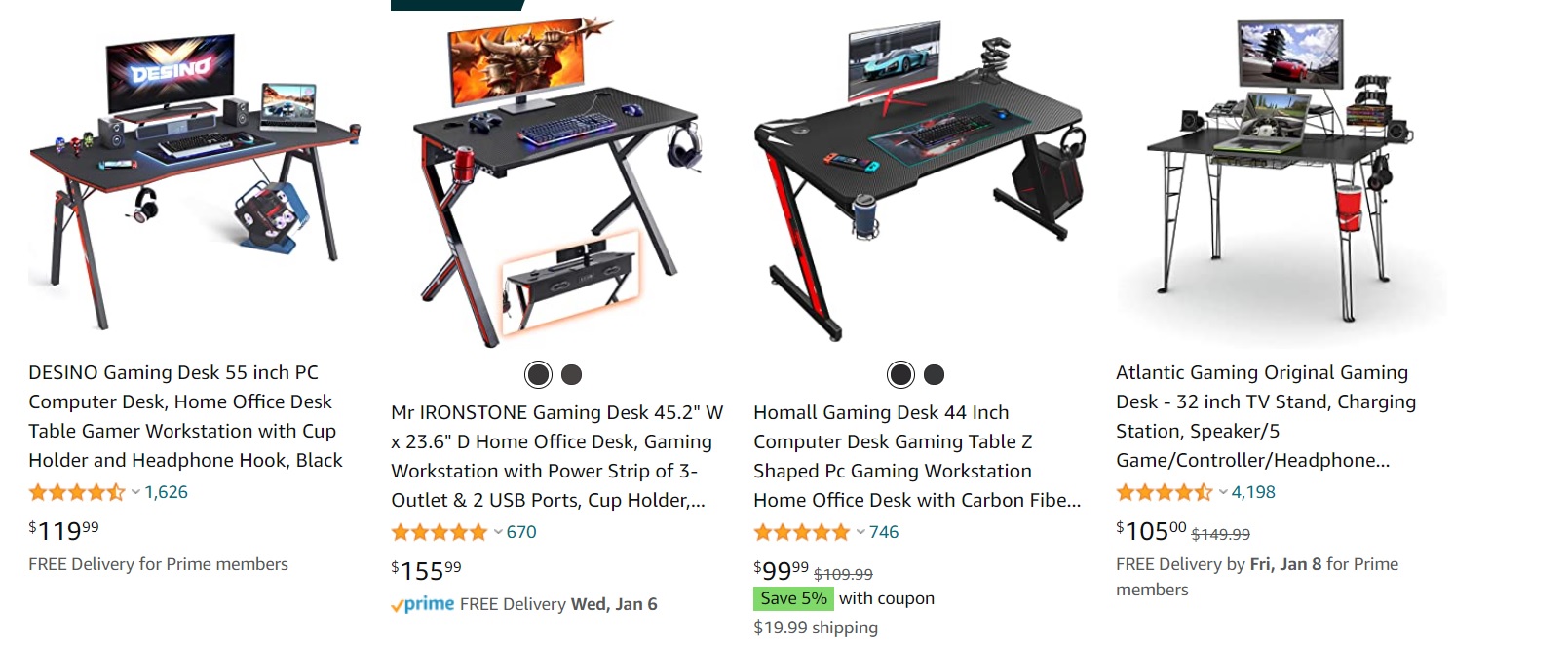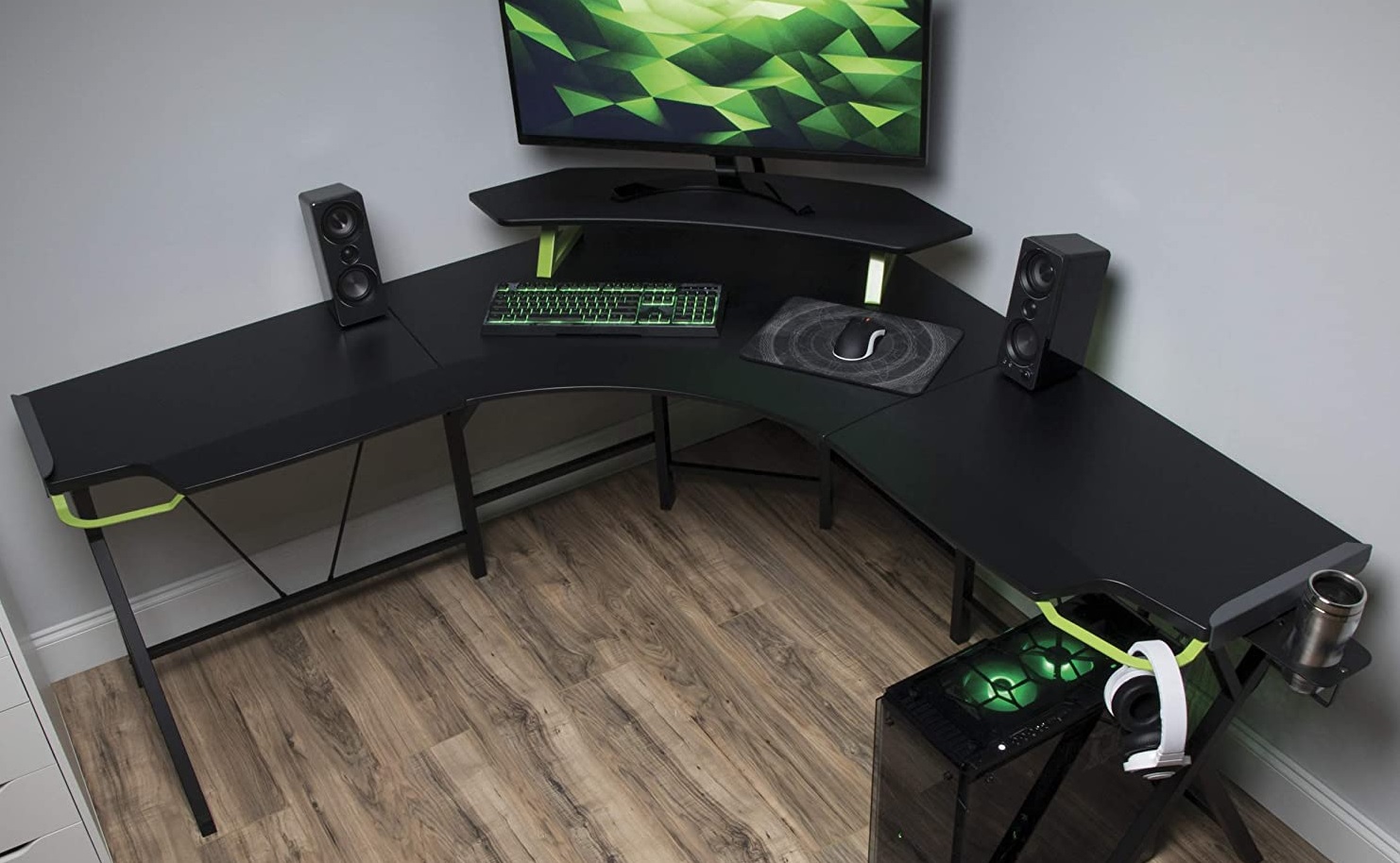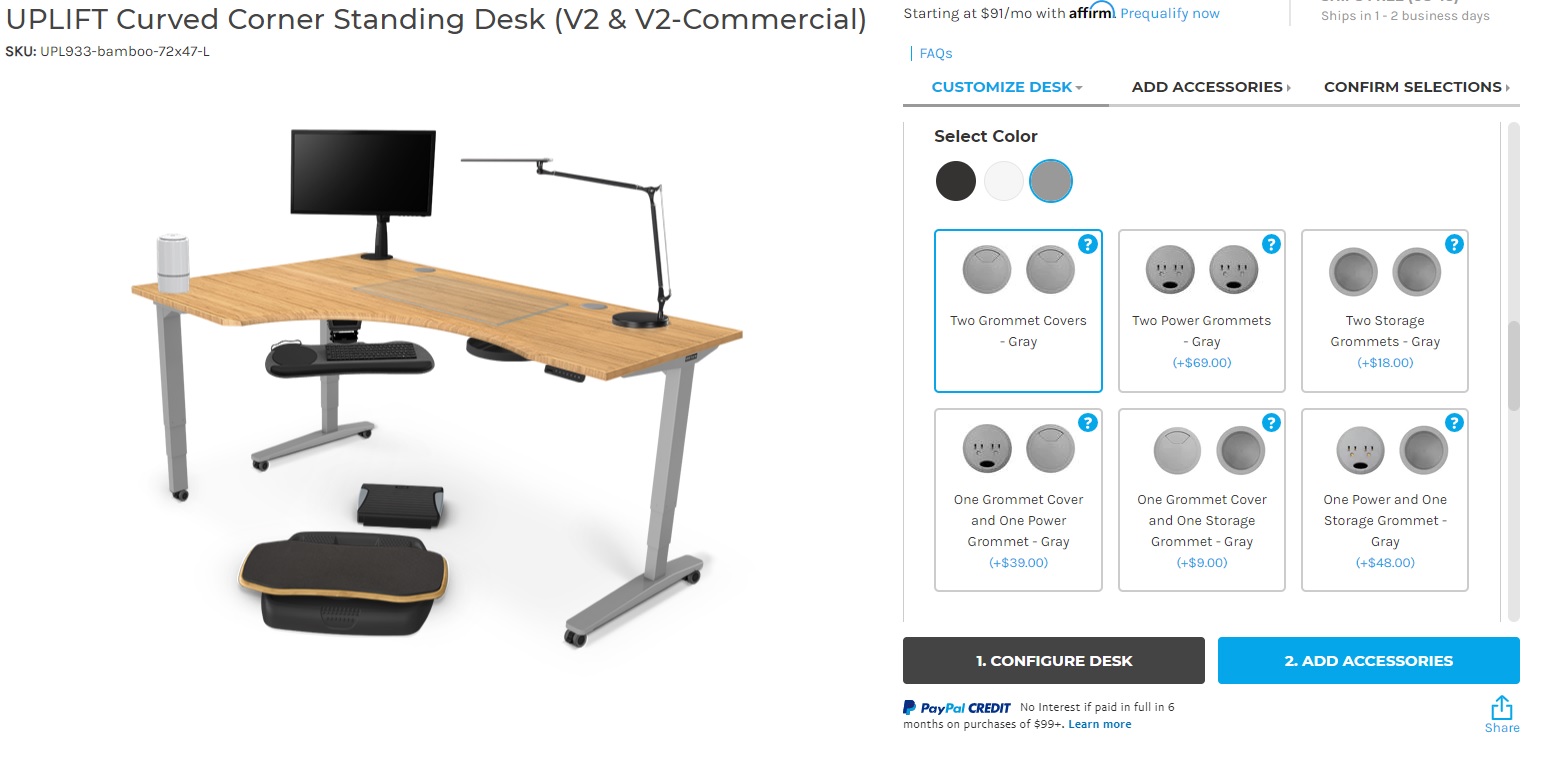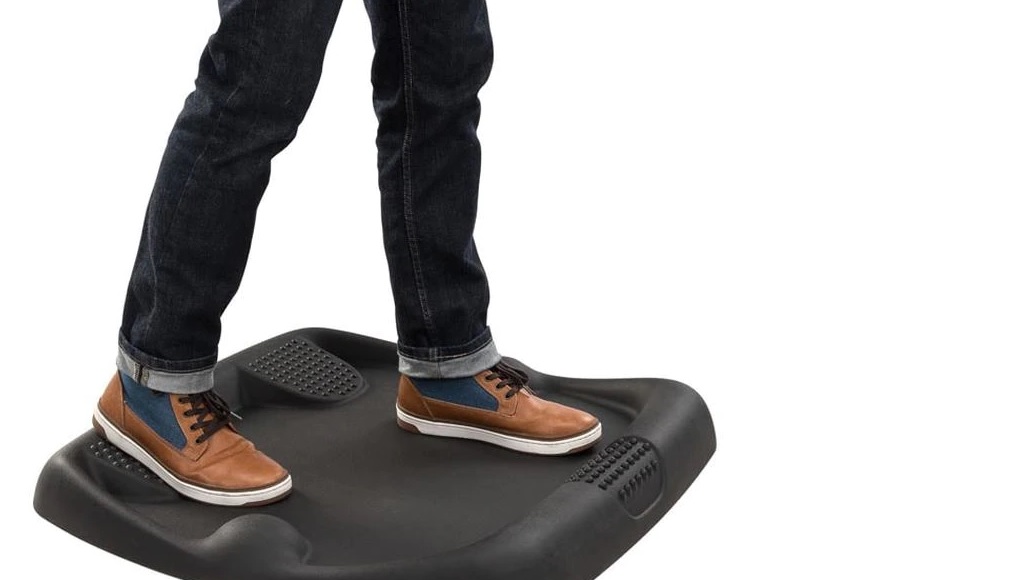The biggest upgrade I made this year was a robot desk
2020 was my upgrade year. I swapped monitors and went ultrawide for the first time, 3440x1440 @ 144 Hz. On Black Friday I got a $180 SATA 2TB SSD. And after completing a series of rituals involving toad blood, I acquired an RTX 3080.
Yes, it's nice hitting my head against the 144 fps ceiling in Control and other games. But my biggest upgrade turned out to be bamboo.
I knew I needed to change my work and gaming space in 2020. I was already working from home before the pandemic hit, but losing the option of lugging a laptop to public spaces like libraries, cafes, or a local restaurant one or two days a week meant that my workspace was going to absorb even more of my activity (and sanity). Since 2016 I'd been using IKEA's Skarsta, a serviceable but basic standing desk.
I'd outgrown its 47" space, but by April the desk had become the sponge for everything: mail, notes, reading material, the odd gaming collectible. It was an entertainment center, office, and auxiliary dining table. It's a lot to ask of a $240 piece of semi-disposable Swedish furniture, and the fact that it was a standing desk didn't magically banish any of these issues.

The prospects for a new desk initially looked grim. When you type "gaming desk" into Amazon, a sea of questionable particle board that appears before you. It's all manufactured by brands you've never heard of, and many of them draw their design inspiration from the racing car beds popular with nephews worldwide. Consider the Respawn 2000 Gaming Computer Desk, an "L SHAPED GAMING DESK was built to withstand battle after battle," according to the product description. There's no mention of what the desk is made of other than non-descript "Wood, Metal, Plastic," but it does promise to provide the Ultimate Gaming Desk Experience. I do like the giant headphone hooks mounted at the corners, actually.

Get Healthy

Sidenote: Nearly all of these bad Amazon desks drop the buzzword "ergonomic" somewhere, but don't back up their claim. Check our Health Kit program for actual advice from a doctor who specializes in gaming.
It's easy to figure out what the highest-tier GPU or even keyboard is; what's the Bentley of gaming desks? It's a hard question to answer because not many high-end options exist. The few gaming gear manufacturers who do produce chairs are doing so at $400 or less, and even those typically have some gimmick, like RGB stuffed into them.
Of the other conventional office furniture makers, Uplift stands out as one that we hadn't yet evaluated in our own best gaming desk guide. The front of the company's website presents Uplift as a larger-scale distributor for companies trying to outfit a new office, but the company produces built-to-order standing desks, each covered by a 10-year warranty on most of the metal components of the desk, like the motorized legs and the steel frame. The company's founder is a mechanical engineer and certified ergonomist.
Deft standing
Uplift sent me the Curved Corner Standing Desk, a larger setup that starts at $1180 (smaller models are $550-$750), excluding the many, many add-ons and accessories that can be folded in. These range from everything to different trays and options for cable management to clamp-on power banks, keyboard trays, monitor arms, and, incredibly, a human-sized hammock you can mount under the desk. It's a six-foot-wide desktop, and the motorized legs elevate 50 inches off the ground (as a six-foot-tall person, I set the desk at 41 inches when standing).
Standing, like anything else, isn't a silver bullet for health or ergonomic problems.
Reflecting on the upgrades I was able to make this year, transitioning to this wider workspace was one of the most meaningful, especially in the context of spending an unhealthy amount of time at home. I don't want to oversell it as some kind of magic makeover, but swapping desks helped me address a longstanding irritation I'd had with my previous setups: I've always struggled to find a gaming chair with arms that sit low enough that they don't collide with my desk edge. I didn't know how to put words to this problem, the subtle discomfort that prompted awkward microcorrections in my chair as I bumped up against the edge of the desk. It's amazing how you just sort of ignore and learn to live with stuff like this that actually measurably affects your favorite hobby.
Three months in, I'm a convert to the concave shape. The way it makes room for your body is inviting. I opted for a bamboo surface (one of five that Uplift offers, including from solid and reclaimed wood, laminate, and an "eco" material made entirely from recycled sawdust), and the only way I can describe the softness of the beveled edge of the desk is to compare it to drinking out of a fancy beer glass. It's surprising what a difference it makes not to have a hard corner pointed at you.

Uplift makes a good first impression with the customization tool on its website. It's the sort of thing that anyone who's used NZXT BLD or a similar online PC building tool will find familiar, a page that visualizes the desk as you swap out different parts, like the choice between different styles of drawers you can screw into the underside of the desk.
One of the downsides of buying almost any large piece of furniture is you have to assemble the thing. The three standard Uplift boxes for the V2 Curved Corner Standing Desk, with no accessories included, weigh 170 lbs. They arrived by freight, delivered to my doorstep on an actual wooden pallet. Unsurprisingly this took two people to assemble, which took a little over two hours but wasn't otherwise difficult. Individual components are high-quality, no bolt or important piece feels off-the-shelf. With two exceptions, all the screws went in smoothly. One slightly-paralyzing thing is that there aren't pre-set positions for the variety of add-ons, so in order to add components like a drawer or certain kinds of cable management I had to be comfortable drilling pilot holes into the underside of the desk.
After spending the back quarter of 2020 in this setup, the biggest difference is I notice how much better I treat my space, how much more respect I have for it. My desk is less of a container for everything I do. And I feel a bit closer to my gaming habit: I run Corsair's Carbide Air 540 case, a great enclosure with a big footprint. And o n the wider Uplift I was finally able to mount my PC on my desk, and I like being able to hear the fans clearly, to see the SSD indicators blinking away reassuringly, and plug cables and drives in without completing some kind of yoga bend.

Something I've learned using a standing desk since 2014 is that standing, like anything else, isn't a silver bullet for health or ergonomic problems. For me standing is just a gateway to having a different posture and, if I'm lucky, a more present mindset while working. But the one thing I'm able to do with an adjustable-height desk is transition between sitting and standing days throughout the week. When I feel more awake or my back isn't feeling great, I can try standing as an alternative. A neat feature in one of the four varieties of keypad Uplift sells lets you program different height positions into numbered presets, like radio stations in a car, removing the guesswork my previous crank-driven IKEA desk sometimes presented. There's even an anti-collision feature, which I triggered when the lip of the desk lowered into a windowsill, sparing it from a dent.
Also: if you're already standing at your setup, I can't say enough about the E7 Active anti-fatigue mat that Uplift makes, an almost eight-pound slab that way outperforms any other standing desk mat I'd used. The thickness of the polyurethane material makes a huge difference, I basically felt like I was standing on an indestructible layer of soft caramel all the time. The textured areas of the mat help alleviate fidgeting.
I'm glad I embraced changing up the area that supports so much of my time—Uplift's customizability and quality get my full endorsement as a PC gamer. Hopefully this setup will continue to make 2021 more comfortable as I spend 10-plus hours a day here.
from PCGamer latest https://ift.tt/2WWHbBQ
via Gamers Online





Post a Comment